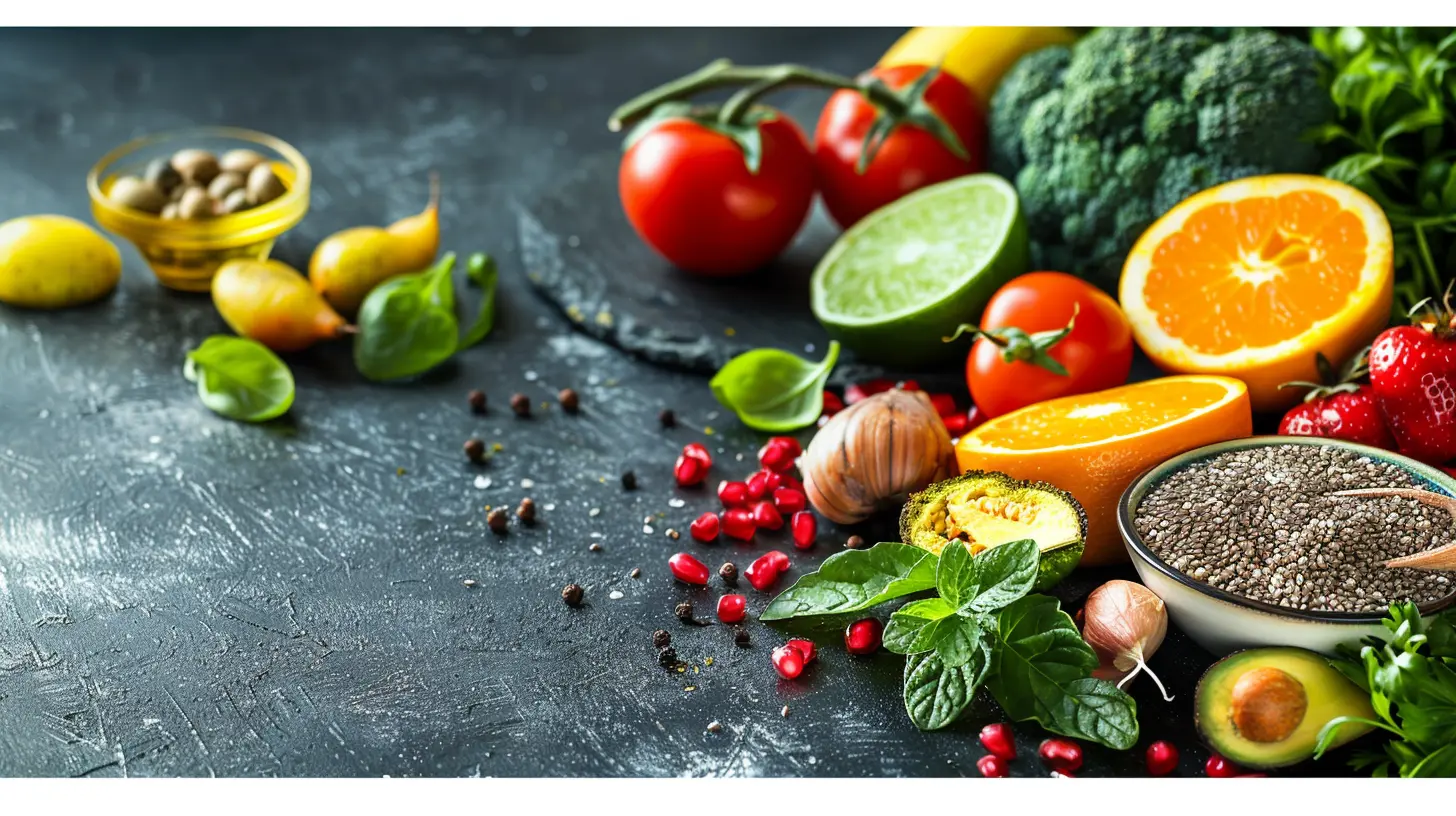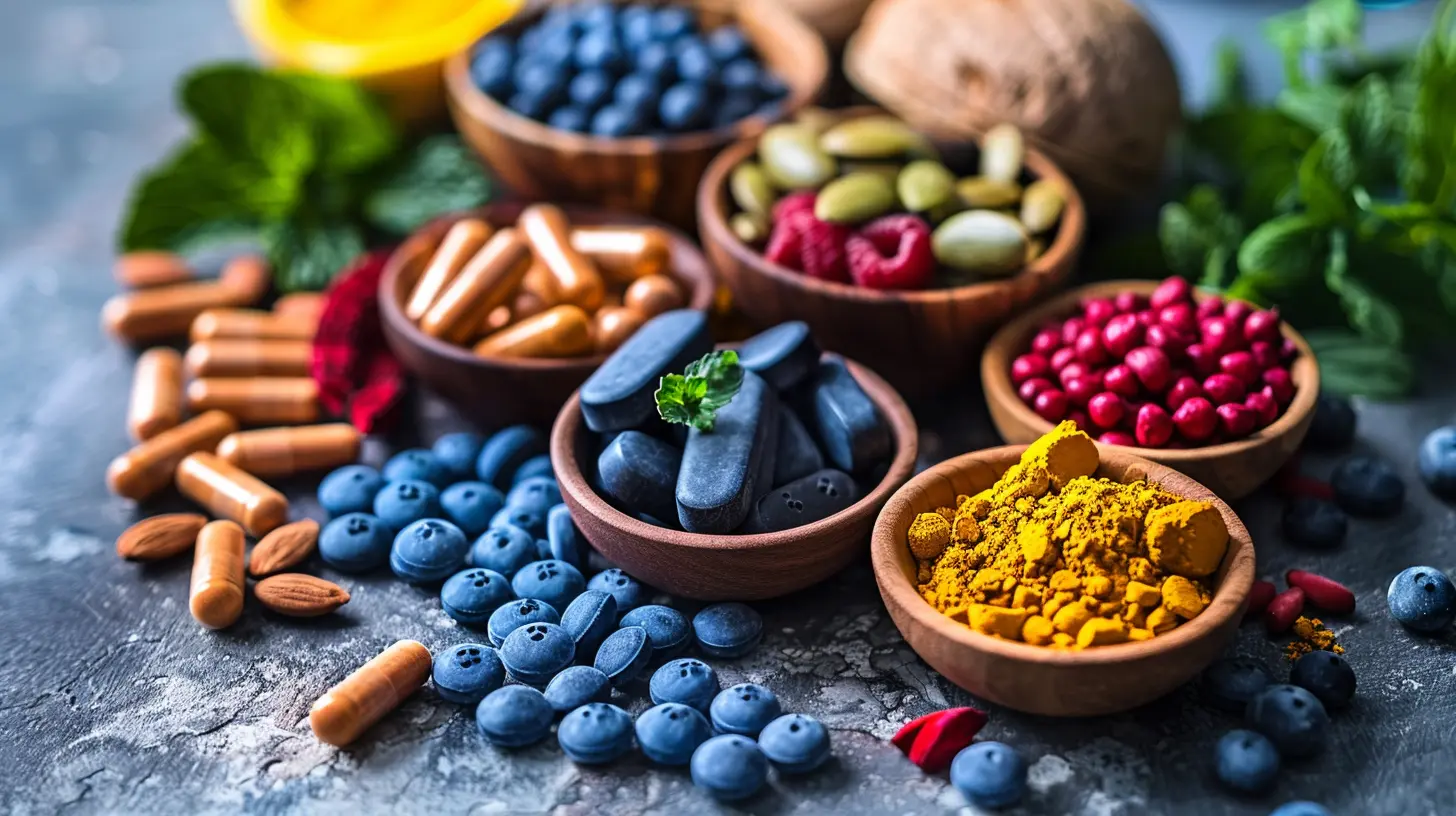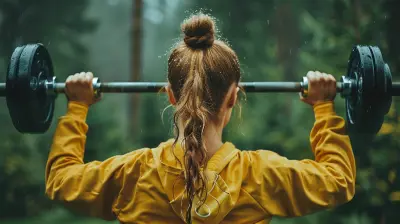Key Nutrients That Aid in Fast Post-Workout Recovery
10 November 2025
Working out is tough, but the real magic happens after you’re done sweating it out. Your muscles repair, grow stronger, and get ready for your next session—but only if you give them the right fuel.
Ever felt sore for days after a workout? Or maybe you feel sluggish instead of energized? That’s your body telling you it needs proper nutrients. Without them, recovery slows down, and progress stalls.
So, what should you be eating to speed up post-workout recovery? Let’s dive into the key nutrients your body craves after exercise and how to get them.

1. Protein – The Muscle Builder
Picture this: Your muscles are like a house that needs constant maintenance. Protein acts as the construction worker, repairing the wear and tear caused by intense physical activity.Why Protein Matters
When you work out, tiny muscle fibers tear (don’t worry, it's a good thing). Protein provides the amino acids needed to rebuild and strengthen those fibers. Without enough protein, recovery drags, and muscle growth slows.Best Sources of Protein
- Lean meats (chicken, turkey, beef)- Eggs (nature’s perfect protein)
- Fish (salmon, tuna – packed with omega-3s too!)
- Dairy (Greek yogurt, cottage cheese)
- Plant-based options (lentils, chickpeas, quinoa, tofu)
How Much Do You Need?
Aim for 20-40 grams of protein within an hour after your workout. This optimizes muscle repair and growth.
2. Carbohydrates – The Energy Replenisher
Carbs get a bad rap, but they’re essential for quick recovery. Think of them as fuel—without them, your energy tank stays empty.Why Carbs Matter
Exercise uses up your glycogen stores (your body’s stored form of carbohydrates). Replenishing these stores helps prevent fatigue and prepares your muscles for the next workout.Best Sources of Carbs
- Whole grains (brown rice, quinoa, oats)- Fruits (bananas, berries, apples)
- Starchy vegetables (sweet potatoes, carrots, beets)
- Legumes (black beans, lentils)
How Much Do You Need?
A good rule of thumb is 3-4 grams of carbohydrates per kilogram of body weight, depending on the intensity of your workout.
3. Healthy Fats – The Inflammation Fighter
Fats aren’t just for energy—they play a crucial role in reducing inflammation and supporting joint health.Why Healthy Fats Matter
Intense exercise causes inflammation. Healthy fats—especially omega-3 fatty acids—help reduce that inflammation, leading to a faster and smoother recovery.Best Sources of Healthy Fats
- Fatty fish (salmon, sardines, mackerel)- Nuts and seeds (almonds, walnuts, flaxseeds, chia seeds)
- Avocados (great for heart health too!)
- Olive oil (use it in salads or drizzle over meals)
How Much Do You Need?
About 20-35% of your total daily calories should come from healthy fats. Balance is key.
4. Electrolytes – The Hydration Heroes
Ever experienced muscle cramps after a workout? That’s often a sign of electrolyte imbalance. These essential minerals keep your nerves and muscles functioning properly.Why Electrolytes Matter
When you sweat, you lose sodium, potassium, magnesium, and calcium. Replenishing these is crucial to avoid dehydration, muscle cramps, and fatigue.Best Sources of Electrolytes
- Coconut water (nature’s sports drink)- Bananas (loaded with potassium)
- Leafy greens (spinach, kale – great for magnesium)
- Dairy products (yogurt, cheese – high in calcium)
- Himalayan pink salt (adds essential minerals)
How Much Do You Need?
If you're training hard or sweating a lot, ensure you're getting enough electrolytes through food and fluids.5. Antioxidants – The Recovery Accelerators
Free radicals (unstable molecules) form in the body after exercise, leading to muscle soreness and slower recovery. Antioxidants help fight these bad guys.Why Antioxidants Matter
They reduce oxidative stress, speed up muscle repair, and keep your immune system strong. No one wants to get sick right after crushing a workout!Best Sources of Antioxidants
- Berries (blueberries, strawberries, raspberries)- Dark chocolate (yes, you read that right!)
- Green tea (loaded with polyphenols)
- Nuts and seeds (great for vitamin E)
- Bright-colored vegetables (carrots, bell peppers, tomatoes)
How Much Do You Need?
Eating a variety of antioxidant-rich foods daily will support recovery and overall health.
6. Vitamin D – The Bone Strengthener
If you’re not getting enough vitamin D, your muscles will feel weak, and recovery will take longer than necessary.Why Vitamin D Matters
Vitamin D supports muscle function, enhances calcium absorption, and reduces inflammation. Unfortunately, many people are deficient, especially in colder climates.Best Sources of Vitamin D
- Sunlight (your best natural source!)- Fatty fish (salmon, tuna, mackerel)
- Egg yolks
- Fortified dairy products (milk, yogurt)
How Much Do You Need?
The recommended daily intake is 600-800 IU, but if you're deficient, you may need more. Check with your doctor if unsure.7. Water – The Ultimate Recovery Essential
It’s simple—no water, no recovery. Your body needs adequate hydration to transport nutrients, flush toxins, and repair muscles efficiently.Why Water Matters
Dehydration can make you feel sluggish, prolong muscle soreness, and even hinder performance in your next workout.How Much Do You Need?
A good post-workout hydration strategy is to drink at least 16-24 ounces of water within an hour of finishing exercise. If you've had an intense session, aim for more.
Best Post-Workout Meal Ideas
Now that you know what nutrients to focus on, here are some tasty meal ideas that pack a punch:- Grilled chicken + quinoa + roasted veggies
- Oatmeal + banana + almond butter
- Greek yogurt + berries + honey
- Salmon + sweet potato + spinach
- Protein smoothie (whey protein + almond milk + banana + chia seeds)
Final Thoughts
Recovery is just as important as your workout. If you skip out on the right nutrients, you’re only making things harder for yourself. By fueling up with protein, carbs, healthy fats, electrolytes, antioxidants, vitamin D, and plenty of water, you’ll speed up muscle repair, reduce soreness, and be ready to crush your next workout.So, next time you finish a sweat session, don’t just walk away—refuel the right way! Your body will thank you.
all images in this post were generated using AI tools
Category:
Post Workout RecoveryAuthor:

Holly Ellison
Discussion
rate this article
1 comments
Brick Bass
Fast recovery isn't just about protein shakes and carbs! Don't forget the power of hydration and micronutrients—your body deserves the royal treatment. So, skip the excuses, fuel up right, and let those muscles bounce back like they own the gym!
November 11, 2025 at 3:36 AM

Holly Ellison
Absolutely! Hydration and micronutrients are essential for optimal recovery. A well-rounded approach ensures your muscles get the royal treatment they deserve!


